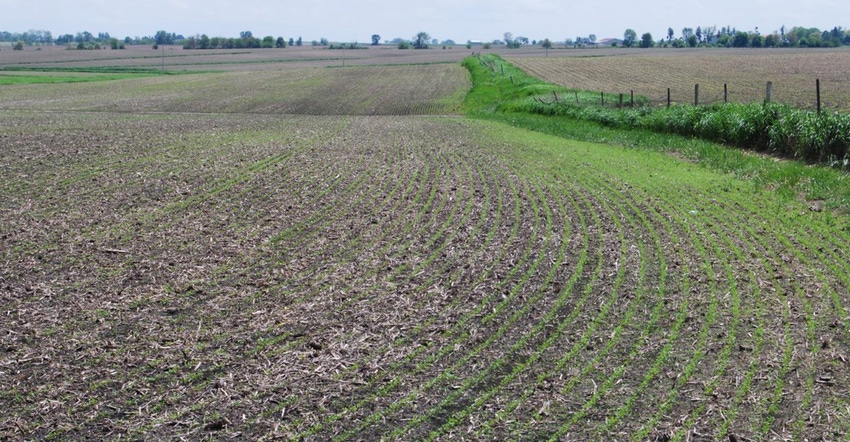July 17, 2019

Unfavorable planting conditions this spring commonly delayed and, in some cases, prevented corn and soybean planting. Farmers looking to plant a cover crop to meet the requirements of their prevented planting crop insurance coverage must work with their insurer on the details of the policy. They also need to be mindful of the legal requirements for selling and buying agricultural seed, which includes cover crop seed for planting on prevented planting acres.
The Iowa Department of Agriculture and Land Stewardship has issued an advisory on purchasing seed for planting as a cover crop. Robin Pruisner, state entomologist and ag security coordinator at IDALS, gives the example of oats being used as a cool-season cover crop. Most oats are grown as certified varieties, and it is important to be aware of the legal ramifications behind buying oats for use as a cover crop.
Buying grain from an elevator for the purpose of planting is not legal because almost all seed varieties have some form of intellectual property protection that restricts the use and sale of the variety under the federal Plant Variety Protection Act.
Violations of the PVP can lead to significant fines for both the seller and the buyer. And the grain likely contains patent-protected traits. Thus, it’s also illegal to plant or sell grain out of a bin, often referred to as “brown bagging” or “bin-run” seed. A third consideration is that all agricultural seed sold in Iowa and surrounding states must be properly tested, labeled and permitted.
However, it is legally permissible for growers to plant their own bin-run grain as seed, if it was grown on their farm, Pruisner says.
Beware of weeds in uncleaned seed
The distribution of uncleaned grain as seed can also substantially add to farmers’ weed seed banks as well as clog the planter, says Mark Licht, Iowa State University Extension agronomist.
The Illinois Crop Improvement Association recently collected a sample of the screenings from a small batch of feed oats and had a registered seed technologist analyze its content. The results, representing the potential weed seed in about 5 bushels of feed oats, included 4,106 green foxtail seeds, 957 yellow foxtail seeds and 91 lambsquarter seeds, among various other crop and weed seeds found in the sample.
If farmers are buying seed to sow on their land, IDALS offers the following advice:
Make sure the seed has a full seed label.
Confirm the seed has been tested for noxious weed seeds, including Palmer amaranth.
Make sure it is a legal sale by asking sellers if they have the legal authority to sell the product. This is especially important if the seed is labeled “variety not stated” (VNS).
Ask about the variety of seed. A variety protected by the Plant Variety Protection Act must be sold by variety name and may be required to be sold as a class of certified seed.
If a farmer or business would like to sell agricultural seed in Iowa, they need to contact IDALS about the permitting process, as well as recordkeeping and seed sample retention requirements. Email [email protected] or call 515-725-1470.
Source: IDALS and ISU, which are responsible for the information provided and wholly owned by the source. Informa Business Media and its subsidiaries aren’t responsible for any content contained in this information asset.
You May Also Like




